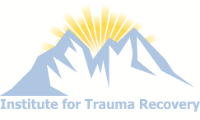Protecting COVID-19 Healthcare Workers’ Mental Health
April 3, 2020 ● 5 min read, 1 hour listen
Interview by Brandon Staglin of One Mind ● Article by Krisana Yuen of The UNC Institute for Trauma Recovery
In this broadcast of Brain Waves, Dr. Sam McLean, Director of UNC-Chapel Hill Institute for Trauma Recovery, and Dr. Christopher Jones, head of Rowan University’s Division of Clinical Research, Emergency Medicine, both reflect on their experiences as frontline healthcare workers during the COVID-19 pandemic.
Measuring Stress on Healthcare Workers
Dr. McLean is the Principle Investigator for the AURORA Study, which examines posttraumatic stress disorder and what happens to the brain immediately after a traumatic event. He hopes to be able to apply what he has learned in the AURORA Study and leverage it to be able to help those who have been dealing with COVID-19. Similarly to the AURORA Study, the Heroes Health Initiative will use smartphone-based assessments. Healthcare workers will take weekly assessments that examine core mental health challenges many healthcare workers are experiencing.
The Heroes Health Initiative hopes to use the data collected to provide additional resources to those who have been caring for those with COVID-19 at work and risking their health to serve others despite their own anxieties. Dr. Jones pointed out the heavy stigma of having mental health problems as a healthcare provider, and employees are “reluctant to reach out on their own even when there are many resources available to help”. Dr. McLean added that “at the most fundamental level, the goal of the app is to survey healthcare workers every week and understand their symptoms to deliver that information to their own organization’s mental health team. Then, they can then reach out and connect with people who need services”.
While working with patients, Dr. McLean contracted a mild case of COVID himself and reflected on how difficult it can be as a healthcare provider to separate early symptoms of COVID-19 from the mental and physical exhaustion of working long hours during the pandemic. On the other hand, Dr. McLean also discussed how working with COVID patients can lead to constant anxiety and worry about exhaustion symptoms actually being COVID symptoms.
Dr. Jones shared his experiences nn emergency medicine physician and researcher. While his particular hospital has fortunately not faced a supply shortage, the question of if or when they might run out of supplies, including personal protective equipment (PPE), looms over all of his colleagues and provokes anxiety. He also feels that “one of the real sources of stress [for him and his colleagues] has been the necessity of limiting visitors in the hospital. It is difficult for someone in the ICU to deal with that, and to force them to go through that without the support is really difficult, which weighs heavily on the staff”. Dr. Jones and his wife are both healthcare workers and have three children, and seeing the stress that is has put his kids under has been challenging as well. However, a bright spot in Dr. Jones’ life right now is being able to reconnect with friends and family members that have reached out and expressed support, and his colleagues have mentioned the same support from a broad range of people.
How Heroes Health May Help
The Heroes Health Initiative also aims to address the concerns about supply shortages that Dr. Jones and many other healthcare providers are experiencing. In addition to collecting data about mental health, sleep, and stress levels, the assessment will also ask healthcare workers about their confidence in PPE supplies and look at burnout levels. This data will allow healthcare leaders to see aggregated data at an organization, city, or regional level so area of need can be identified and supplies or additional workers can be sent to those areas. “It’s very important to frequently assess what is going on in the front lines through things like the weekly assessments so that individuals, units, and organizations that are running into challenges can be provided those resources at the time that they need them,” says Dr. McLean.
Dr. Jones and Dr. McLean are also working on another initiative to help emergency departments (EDs) collaborate to address the pandemic. They are in the process of launching a study to identify steps ED leaders have taken from an operational standpoint to ensure that their patient care continues running smoothly even with an influx of patients. With this study, they are hoping to take information from departments with pandemic experience and disseminate the best practices and ideas to other ED leaders so that they will be better prepared for it when it hits their local area.
While the future of the pandemic is still uncertain, Dr. McLean and Dr. Jones are hopeful that questions about COVID-19 will start to be answered in the near future, especially with studies such as the Heroes Health Initiative. When asked about what lies ahead for healthcare workers during the COVID-19 battle, Dr. McLean responded, “The good news is that things will only get better in terms of knowledge of the virus and treatments. We will continue to gain the upper hand through the scientific method”. Dr. Jones emphasized the progress that has been made regarding mental health and the need for normalization of seeking help. According to Dr. Jones, “This has gone a long way to remove the stigma that many healthcare professionals have internalized in respect to reaching out and asking for help when they need help…Health care providers in general are willing to take that step, and I find that to be helpful as well”.
